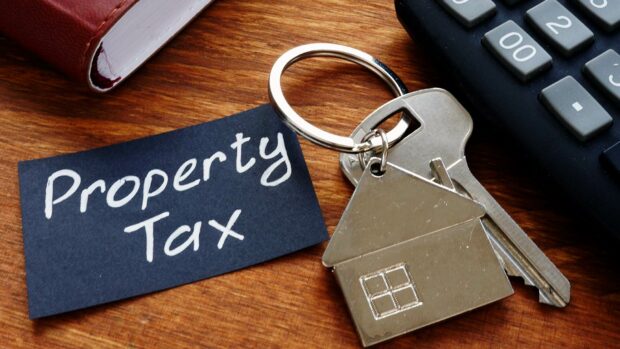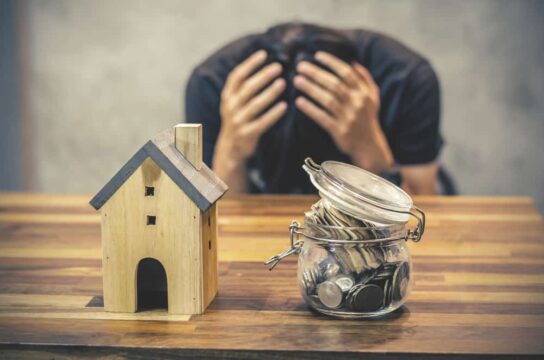What’s the biggest campaign concern for Gen Z? It’s not abortion rights or student debt – it’s affordable housing.
That was the top takeaway from a recent poll of 3,000 homeowners and renters from real estate service Redfin. More than 9 in 10 Gen Z respondents rated housing affordability as their top issue in the next presidential election.
“Buying a home feels impossible for many Americans. This is particularly the case for young people, who have seen the cost of starter homes increase twice as fast as incomes,” said Redfin Senior Economist Elijah de la Campa. “Young people care about other political issues, like immigration and abortion rights, but they’re more likely to cite housing affordability as a factor in their vote because it directly impacts the roof over their head, their lifestyle and their ability to build wealth.”
Debt.com’s chairman, Howard Dvorkin, CPA talks why Gen Z homebuyers feel they have no choice but to rent than purchase a home…
Click here for full video transcript
0:04so there’s been a trend in the housing
0:07market where a lot of Millennials and
0:10genz are kind of giving up their
0:12American dream of owning a house and
0:15feeling like it might be a little more
0:16financially responsible to even start
0:19renting what do you think about this
0:21crisis and what do you think about this
0:23movement well first of all you should
0:26never give up your dream that’s the
0:28first thing and you know what
0:31I will be the first person to say not
0:33everybody should own a house in this
0:35country but if you’re a working person
0:38and you have a spouse and you’re working
0:41and you’re working hard you should own a
0:43house um no question but you have to own
0:47a house that you can afford and
0:51unfortunately because of interest rates
0:53because of demand supply and demand
0:56housing in this country is problematic
0:59right now
1:01um the challenge is that people are
1:04hoping that the interest rates go down
1:06and all of a sudden they’ll make housing
1:08affordable I don’t buy it because as
1:11demand goes up for these houses the
1:14price will go
1:16up the problem you have is that wages
1:20have gone up and so has everything else
1:23in this country and inflation and and
1:27the cost of construction so that has
1:30caused a problem the other thing is
1:32supply and demand as I said earlier now
1:35the supply problem is there’s just not
1:38enough houses on the market and that’s
1:40caused by a couple things if you were
1:42lucky enough to get a 3% mortgage during
1:47the pandemic or low 4% you’re not coming
1:51out of that house anytime soon and the
1:54reason being is you can’t afford to move
1:58now in certain areas like where we are
2:00the average homeowner used to stay in
2:02the house and flip a house every four
2:04years yeah that’s not the case now
2:07they’re locked in they’re not giving up
2:09that low mortgage that being said um
2:13there are things that people can do uh
2:17you know save more put more into uh
2:20savings accounts and put more down on
2:24the house to lower the mortgage payment
2:26um the challenge that I see for young
2:30adults and believe it or not I have uh
2:32children that that are looking for
2:34houses and I hear it a lot that they
2:37can’t find a house well maybe they need
2:40to move to a little less expensive area
2:43I’m not saying move towns but maybe or
2:48counties or States maybe they need to
2:51move a little further out to get what
2:53they’re looking for and put up with the
2:55drive maybe not so much a a house on the
2:57beach but maybe a little more 15 in
3:00maybe so I think a house on the beach is
3:03pretty unattainable for a lot of folks I
3:04would agree I would agree but the other
3:07thing that’s being
3:09lost is the tax savings when you buy a
3:13house because you get part of that
3:16mortgage payment is being subsidized by
3:19the government because you do get uh
3:22some help with your real estate taxes
3:25and your uh the interest you’re paid Now
3:29Grant
3:30this uh recent tax law change reduced
3:33that overall amount however there’s
3:36still some savings that are viable and
3:38they’re there so it will reduce the
3:40amount you will spend on those um it’s a
3:44tough time to be a young adult right now
3:47cuz you got a lot of pressure and and
3:50you need to go through and figure out
3:54you know what you need and if you have
3:56to rent a little longer than you hoped
3:59then you rent a little longer
Six-figure down payments
Gen Z is coming of age in one of the most expensive housing markets in history.
New research from real estate company Zillow shows you need a six-figure down payment to attain an affordable mortgage. Mortgage interest rates are hovering around 7% now. Zillow says the typical U.S. home is valued at about $360,000. It’s advised to spend no more than 30% of your household monthly income on your mortgage payment.
That means you’ll need to put $127,750 down, according to Zillow. It’s not impossible for high income earners who are further along in their careers. But right now the average salary in the U.S. is less than $60,000, says Census, and Gen Z makes up the youngest of those earners.
Even if the money’s there, you still have the challenge of finding an available home.
Shrinking inventory
Housing inventory has been low for years. New research shows the inventory is actually shrinking.
New research from Zillow shows there’s a housing deficit of 4.5 million homes. It’s shrinking at an alarming rate: From 2021 to 2022, the U.S. housing shortage grew from 4.2 million to 4.5 million. Meanwhile, the number of families has grown. In 2022 alone, there was an increase of 1.8 million U.S. families, and only 1.4 million homes.
“The simple fact is there are not enough homes in this country, and that’s pushing homeownership out of reach for too many families,” said Orphe Divounguy, senior economist at Zillow. “The affordability crisis extends to renters as well, with nearly half of renter households being cost burdened. Filling the housing shortage is the long-term answer to making housing more affordable. We are in a big hole, and it is going to take more than the status quo to dig ourselves out of it.”
Between being locked into a mortgage rate and facing a historically expensive housing market, current homeowners have little reason to sell. And honestly, they may not be worth the costs and effort.
Who can afford to sell?
It now costs nearly $55,000 just to sell a home now. That’s the takeaway from a recently-released survey of 1,014 Americans who sold homes in recent years.
Everyone knows there are costs when buying a home. Some selling expenses may seem shocking. More than 3 in 4 (76%) of sellers spent money on repairs and renovations before listing their home.
Those home sellers told Clever real estate they spent $10,000 fixing and upgrading their plumbing, kitchens, and roofs. Then closing and concession costs were another $15,200. Marketing and moving added another $8,000 to the bill. When combined with other miscellaneous costs, “42% of sellers say the cost of selling their home was higher than expected.”
Renting ‘s not much better
Gen Z voters aren’t just concerned about buying homes. Many are currently renting, which has grown beyond unaffordable.
Financial experts recommend spending 30% of your income on housing. Right now, renters earn less money than what rents cost. How much? More than $11,000. A new study from Redfin shows the typical renter earns $54,712 per year, while rents cost $66,120.
The study says “only 38% of renters make enough to afford the median-priced apartment.”
“Wage growth should continue to outpace rent growth in the coming months, as it has been doing since 2022,” said Redfin Senior Economist Sheharyar Bokhari. “That will help narrow the affordability gap for renters, but for a lot of folks, the math still won’t check out. Many U.S. renters are and will remain burdened by the cost of having a roof over their head, and unlike homeowners, they’re not building wealth through rising property values.”












